Brooksville Agricultural Environmental Research Station (BAERS)

The FAMU-CAFS Brooksville Agricultural and Environmental Research Station (BAERS) is located in Brooksville, Hernando County, Florida. BAERS' 3,800 acres is inhabited by many species of wildlife and plant life that are captivating and a true picture of natural art to watch. At the time of transfer of the land to FAMU from the United States Department of Agriculture, Agricultural Research Service (USDA-ARS) in 2015 the goals listed by CAFS for the Brooksville site were:
1. To conduct agricultural and natural resource research that will benefit the nation, state and local communities;
2. Develop and implement the beginning rancher and farmer programs, and outreach projects;
3. Develop and implement socio-economic projects that will enable the Brooksville site to be economically viable and self-sustaining;
4. Develop youth development and experiential learning and training opportunities for students at all grade levels;
5. Develop and showcase demonstrations designed for various alternative agricultural enterprises from current and future areas in the college; and
6. Engage faculty from FAMU and other universities to participate in the Brooksville project.
There is also the recognition that because Brooksville is located in a subtropical region, we anticipate BAERS will expand into new research related to subtropical fruits and animals and conduct research of significance to Central and South America, and the Caribbean. The establishment of an International Goat Center further strengthens the importance of BAERS in this region. Furthermore, as part of its strategic planning initiatives BAERS anticipates “a. to create a land-based economic opportunities that will enable the Brooksville /Hernando areas to be economically viable and self-sustaining; b. to develop smart and sustainable agriculture demonstration where best management practices combine with next generation technologies to optimize yield and economic value in the face of environmental variabilities; c. to develop innovative solutions to the world’s food production, food safety, and food security problems; and d. to provide interdisciplinary demonstrations of various alternative agricultural enterprises for FAMU schools and colleges through remote linear and experiential learning to students and the public."
BAERS conducts research in the areas of:
- Preservation, conservation and ecological restoration of Florida rare, threatened and endangered plant species such as the Brooksville Bellflower (Campanula robinsiae) and Cooley’s Water-Willow (Justicia cooleyi) in collaboration with Bok Tower Gardens,
- Blueberry and Muscadine grapes small fruits research in collaboration with CAFS Center for Viticulture and Small Fruits Research (CVSFR) and CAFS Center for Biological Control (CBC),
- Ecosystems Services research that encompasses Ecotourism in collaboration with Florida Forest Service, Hernando County, Hernando Audobon Society, and related neighborhood associations.
- Watershed/Wetland Ecology in relation to Lake Lindsay and Townsen Wetland in collaboration with the CAFS Center for Water Resources (CWR),
- Invasive plant species research with emphasis on Cogongrass (Imperata cylindrica, L) in collaboration with the Florida Fish and Wildlife Conservation Commission,
- Livestock Pasture grazing systems emphasizing stocking rates of large ruminants (beef cattle) in collaboration with the Florida Black Farmers Agriculturalists Association (FBFAA) and CAFS Animal Science Program,
- Agroforestry systems and climate change through silvopasture systems with small ruminants (goats and sheep) in collaboration with CAFS Agronomy and Animal Science Programs.
- Brazil Color Cotton Breeding and Genetics research if and when funded in collaboration with CAFS Office of Research, The Leon County Office of Economic Vitality and Cotton Droplet Research Initiative (CDRI) of Brazil.
About BAERS
Helping Black Farmers Help the Land
FAMU-BAERS is partnering with the Natural Resources Conservation Service (NRCS) to improve the health of our Nation’s natural resources while encouraging the use of best management practices to improve the productivity of American agriculture for the underserved, socially disadvantaged Black farmer community. Our goal is to achieve this by providing volunteer participants an introduction to the technical and financial assistance available via the federal Farm Bill programs. This will be accomplished by reassuring strong partnerships with private landowners and managers in the underserved communities to conserve, protect, restore, and enhance the lands and waters upon which people and the environment depend.
FAMU-BAERS vision is of inclusive conservation technology for all farmers; our goal is to facilitate productive and effective governmental agency collaboration on working lands in harmony with a healthy environment, training participants to be proficient in resource conservation through the Installation of best management practices in the underserved socially disadvantaged Black farmer community.
FAMU-BAERS’s innovative use of experienced, retired USDA persons (Conservation Contractor-CC and Retired Conservation Contractors-RCC) is being used in the three Southeastern states of Florida, Georgia, and Alabama. Our goal is to strengthen conservation planning for a more effective and efficient delivery of the technical and financial assistance of NRCS programs and services to under-served socially disadvantaged Black farmers, through The Agriculture Improvement Act of 2018 (2018 Farm Bill). The CCs and RCCs will work to establish effective communication that will remove historical barriers, increase the technical transfer of information, and collaborate for the common purpose of achieving a business benefit for Black Farmers.
BAERS Strategic Planning Initiatives:
- Enhancing agricultural and natural resource research capacity that will benefit state, local, national and international communities
- Creating a system of support for new and beginning farmers and ranchers, veterans, native Americans, minorities and women
- Creating land-based economic opportunities that will enable the Brooksville/Hernando areas to be economically viable and self-sustaining
- Developing smart and sustainable agriculture demonstration where best management practices combine with next generation technologies to optimize yield and economic value in the face of environmental variabilities
- Developing innovative solutions to the world’s food production, food safety, and food security problems
- Providing interdisciplinary demonstrations of various alternative agricultural enterprises for FAMU schools and colleges
- Providing opportunities for FAMU faculty and other 1890 and 1862 university faculty to participate in the Brooksville Station that will lead to enhanced research productivity and academic excellence
- Creating international, public and private partnerships and linkages that will enhance the quality and reach of the institution.
North Florida
Franklin, Gadsden, Jackson, Jefferson, Leon and Madison.
South Alabama:
Dallas, Green, Lowndes, Marengo, Sumter and Wilcox.
South Georgia:
Brooks, Early, Grady, Lowndes, Mitchell and Thomas.
Special Projects
There are two on-going special projects at BAERS:
The FAMU Livestock and Crop Improvement Program (FLCIP) is located both at the FAMU Research and Extension Center (FAMU-REC) in Quincy, Florida and at BAERS in Brooksville, Florida. The program at BAERS is leading to the acquisition of scientific knowledge that will enable the University and CAFS to assist its stakeholders – the limited resource farmers to enhance productivity and profitability of their farming operations. The program includes livestock improvement, hay production, forage systems improvement, specialized horticultural crop, and best management practices for livestock and crop production. FLCIP also includes the training of new and beginning farmers and ranchers in Florida.
This special project is as a result of $1.15 million competitive grant award received by BAERS from the United States Department of Agriculture - Natural Resources Conservation Services (USDA-NRCS) for attracting more minority and veteran farmers to be fully aware of programs implemented by the USDA-NRCS. Utilizing a strategic plan from the Conservation specialists as a plan of action this project will operate from the broad-base of watershed management with four primary components: 1) wildlife habitat management (WHM), 2) wetland restoration management (WRM), 3) conservation water management (CWM), and 4) conservation planning (CP). This project involving limited resources farmers in three states (Florida, Georgia, and Alabama) is quite unique.
"The FAMU-BAERS vision is of inclusive conservation technology for all farmers... through the installation of Best Management Practices in the underserved, socially-disadvantaged Black farmer community. "
More about BAERS
Notes from the Executive Director
The call to the farm seems to be stronger than ever. Maybe it is at an all-time high point. Many individuals are retiring early, no longer can tolerate being bored with their government job or they simply want to see a miracle happen every day-something growing. They come to agriculture because it has the ability to make them whole, it completes them the individual. They seem to enjoy the process of making something work, the art of production it seems. They produce to sell, barter, or trade honey, organic crops, field raised hogs, chickens, grass-fed beef and whatever it takes to sustain them.
At the local markets which may be miles away or just down the street. They are quickly accepted as a part of the community. They have vigor and pizazz. On occasion, they are called hobby farmers. With no or little farming experience and a few acres of land and their cashed out 401Ks, savings, retirement and anything else they can scrape together to buy land and used equipment, they come ready to live. They come excited about watching stuff grow. They bubble with enthusiasm about taking it to market. They put together several cluster occupations ad products and sit eagerly at the kitchen table to plan their marketing, to count money from sales, to total costs, and to plan what adjustments need to be made to keep old equipment working, and find new markets.
This trend is not limited to age or income or even land ownership. Some are young, bright-eyed, and bushy-tailed but all are filled with hope and the stuff that dreams are made of. They want to feel life in everything they touch and desire to be free and valued by themselves, their customers and their farming community. They have no intention of giving in or giving up.

"It is not hard when you really want to"
No, they have no intention of giving in or giving up. Tractor roll over deaths lead the way for young inexperienced farmers. They sit there with that old, on-its-last-legs tractor in C-4 and 2100 RPMs. Too many pop that clutch out and watch in horror as the front end rises up off the ground. Don’t you just pray that they clutch it before it rolls. I do wish we could save them all. Just think of the fortitude they come with. To them, agriculture is not big business, not thousands of acres of land, not 15,000 mama cows. They are armed mostly with hopes and dreams and the gleam of peace and happiness and dirt under their fingernails because they have been blessed, and now they have found fulfillment and themselves.
I would wager you my lunch that most of those who will read this newsletter know exactly what I am talking about. Some may even long for those days again - that fresh feeling, a new start flooded by dreams of possibilities and, and yet to be realized desires. Yes, I see the dirt and grease under your nails, and the smile on your face that says I have faith, a little money and 24 hours in a day. I can do this!
I have this feeling every day on my way to work and all day at work. I do not hang my hat on what I see at the at the Brooksville Agricultural and Environmental Research Station (BAERS), but on what I know it can become. I know that it will take much effort, many days and money we do not have in the bank; but be assured that that we are not about to give up. When it is all said and done, we at BAERS will provide invaluable services to new and beginning farmers and ranchers, military veterans, and minorities. We will focus on reproductive physiology, bull testing, protein content of hay, and semen collecting and storage. We will host seminars and work sessions designed to transition hobby and beginning farmers into agriculture safety.
We will always endeavor to involve experienced and current farmers in listening sessions where they talk and we listen to what their needs and how we can be a better research station. We will work very hard to create success partners by combining efforts, talents, and great ideas. There have been times when many of my best ideas were borrowed, adapted and not returned. So all new ideas are in danger of being carefully considered and wisely used. If a flower can grow through a crack in the sidewalk and blossom. I believe that this research station can do the same. Ultimately, we will create “a wall of partners.” At this very second, you are asked to have your name or that of your company listed there to indicate that you too say the challenge is difficult but you saw a good fight for the future of agriculture, and decided that the only thing to do was join the battle. Think of the 23 acres, an old tractor, a couple of implements, high RPMs, and thoughts of releasing that clutch for the first time. What are you going to do? Find me and let’s go all in.
Fred Gainous, Ed.D.
The vision for the Brooksville Agricultural and Environmental Research Station (BAERS) is to create opportunities that promote the 1890 Land Grant mission of teaching, research, and extension. The station will enhance the foundations of innovative service, effective training, and clinical experiences relevant to research, inquiry, advanced technology, and meaningful local, state, national, and global partnerships which constructively inform the universal economy.
Public Review USDA Land Transfer Draft
Final Environmental Assessment USDA FAMU Land Transfer WITH appendices and cover
Finding of No Significant Impact USDA FAMU Land Transfer 23 June 2015
United States Department of Agriculture (USDA) Strategic Plan FY 2014-2018
BAERS Public Survey Instrument for Stakeholders
The story features the Brooksville-Hernando County Community Forum that was hosted on October 10.
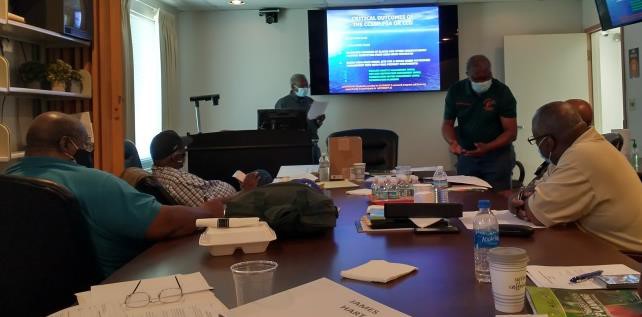




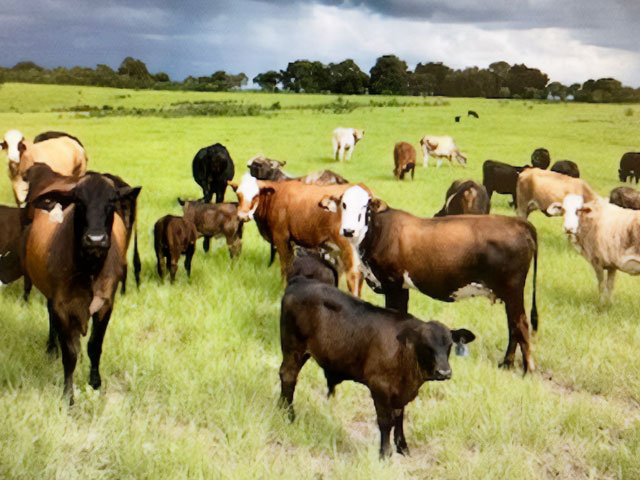
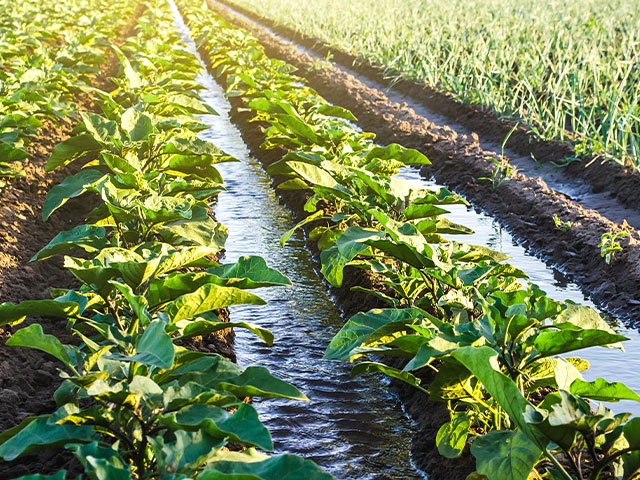
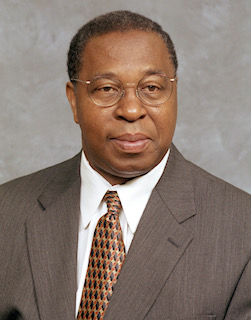
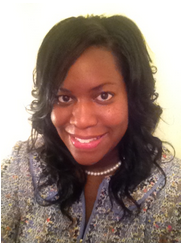 Monica Rainge, Esq.
Monica Rainge, Esq.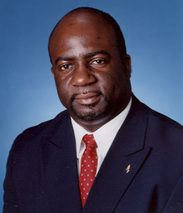 Dr. Timothy Beard
Dr. Timothy Beard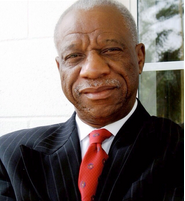 Dr. Ulysses Glee
Dr. Ulysses Glee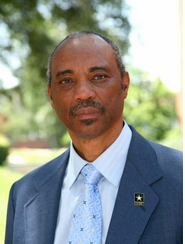 Dr. Ray Mobley
Dr. Ray Mobley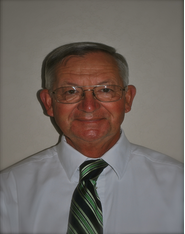 Mr. V. Eugene Rooks
Mr. V. Eugene Rooks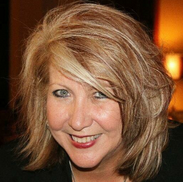 Ms. T. Jennene Noman-Vacha
Ms. T. Jennene Noman-Vacha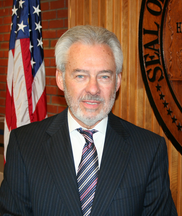 Mr. Leonard Sossamon
Mr. Leonard Sossamon Dr. Robert Taylor
Dr. Robert Taylor